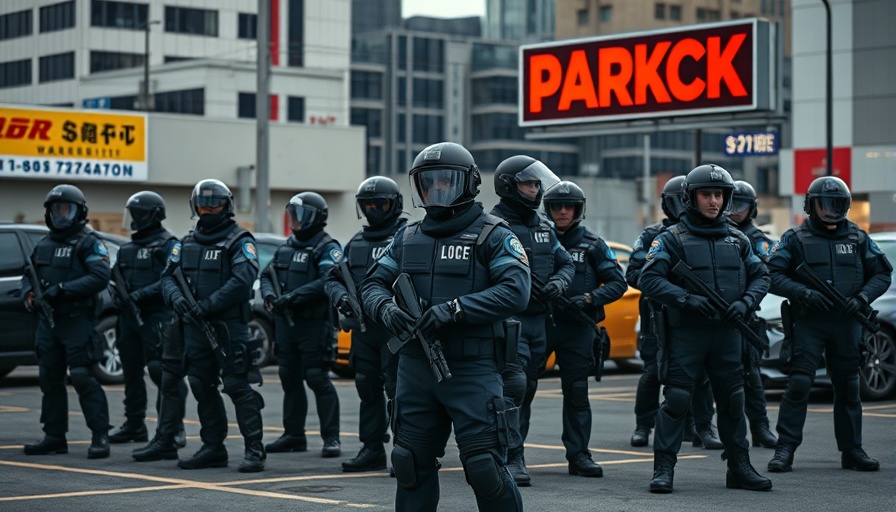
Los Angeles Braces for Unprecedented Protests Against Immigration Policy
The anticipation is palpable in Los Angeles as the city prepares for what could be the largest protests seen in recent history, sparking attention not only locally but across the nation. Police Chief Jim McDonnell has labeled the situation as potentially "unprecedented," highlighting the rising discontent against the Trump administration's immigration policies. This Saturday marks a crucial day where activists are mobilizing across all 50 states, with a specific focus on the "No Kings" demonstrations, coinciding with a significant military parade.
The Role of Law Enforcement and Military
To counter the expected surge in demonstrators, authorities are taking significant measures. Reports confirm that approximately 200 Marines have taken over security at a federal building in Los Angeles, replacing National Guard members. This decision raises questions about the increased militarization of law enforcement in response to civil protests. Maj. Gen. Scott M. Sherman noted that the National Guard would still play a role in supporting federal law enforcement, but the sight of Marines stationed prominently might lead to heightened tensions.
The Landscape of Protests in America
Today's protests come against a backdrop of escalating demonstrations nationwide—particularly in response to a recent raid by Immigration and Customs Enforcement (ICE) agents in Los Angeles. As activists prepare for Saturday, Friday witnessed only scattered protests. Many protesters have shared their determination to ensure their voices are heard, challenging the narrative set by the government. The scale of upcoming demonstrations could very well influence the political discourse surrounding immigration and civil rights in America.
Historical Context: Protests in U.S. Society
Protests have long been pivotal in shaping American policy and societal norms. Historical instances, from the Civil Rights movement to anti-war demonstrations, illustrate how collective voices can lead to significant changes. This Saturday’s protests may add another chapter to this legacy. As activists come together from diverse backgrounds, they epitomize a collective response to perceived injustices. Understanding this context underscores the importance of such gatherings in American democracy.
The Emotional Climate Leading to the Protests
The urgency behind the demonstrations reflects deep-rooted frustrations among communities affected by immigration enforcement measures. Many individuals feel directly threatened by these policies, prompting them to take action amidst a climate of apprehension and concern for family members and friends. By mobilizing, these activists are not merely challenging a policy—they are asserting their rights to seek safety and dignity.
The Broader Impact and Future Predictions
Looking ahead, the outcome of these protests may pivotally influence the upcoming elections and contribute to broader legislative discussions around immigration. Many political analysts are speculating that the heightened visibility of protesters in response to harsh immigration policies could sway public opinion and compel lawmakers to reconsider their stance. The significant turnout on Saturday might empower more influential voices in politics and force critical discussions about immigration reform.
Call to Action: Get Involved in Civic Engagement
As we witness demonstrations unfolding across multiple states, it is vital for you, as engaged citizens, to participate in the democratic process. Whether through protests, advocating for change in local communities, or discussing these issues with peers, your voice matters. Stay informed about the developments in immigration policy and consider reaching out to local representatives to express your views. Civic engagement is not just a right; it is a necessity for a thriving democracy.
 Add Element
Add Element  Add Row
Add Row 



 Add Row
Add Row  Add
Add 


Write A Comment